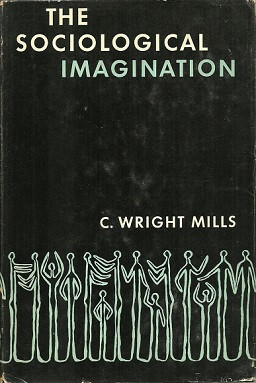ARDS SYNDROME FETISHISMS POST COVID-19`
The proposed new method for determining a new definition for “ARDS” (Ref.1) comprises “grand theory” as described by Mills in 1959. Mills points out that, "With the label of grand theory comes a whole syndrome of unfavorable designations like “fetishism of the concept” (Ref 2)
Here the instant fetishism is of “ARDS”, a failed syndrome guessed by one man or, at most, a few persons in 1967 and advanced by pathological consensus under “syndrome science” for 56 years.
This is the previously cited article to which Tobin responded with his “plea for honesty” (Ref. 3) and it describes methods borrowed from sociology for defining a new definition of ARDS. This article comprises a desperate call to salvage the 1967 guessed construct by the application of more integrated subjectivity. No wonder Tobin requested honesty. Below are quotes from the article describing the method for generating a new definition of ARDS
“…many of what physicians call ‘syndromes’ would be called ‘hypothetical constructs’ by psychologists”. ARDS fits into this schema, … An enormous body of literature exists for developing tools to measure these complex constructs such as intelligence, racism, and quality of life.” (for references see original)
Defining ARDS by the methods used to define “intelligence, racism, and quality of life” is a desperate proposal. It is proposed because ARDS cannot be defined in objective terms. So this, on its face, is just another (more complex) top-down approach which still relies on subjective imaginations which may for decades remain biased by “ARDS syndrome fetishisms”. Indeed, this would comprise an endless playground for those with ARDS fetishisms to publish. In the alternative, we already have a categorization available based on each objective disease causing hypoxic respiratory failure so we do not need ARDS. In fact, it was research directed to the specific disease, COVID pneumonia, and not ARDS (whatever that is) which made the critical discoveries.
Here the fetishisms of the concept or “construct” as they call it, of 20th century ARDS, is so strong they go backward into the subjective world of psychiatry where few objective measurements are available despite the fact that objective measurements (eg PCR) are ubiquitous in critical care. Since an objective overarching definition for ARDS has been elusive for 56 years, they go from the potential study of the time series matrix of objective data relating to specific diseases backward into the subjective imaginations, to define a guessed construct that has already failed the public…
Reading Petty describing his idea in 1975, (Ref.4) he was clearly just wrong as women and men often are. There is no other way to say it. Stop the fetishism. ARDS was just a bad idea that became dogma in the 90s and whose time has past.
Perhaps the ARDS terminology can live on in the clinical world subservient in each instance to the disease specific condition but it is a far to subjective and fluidic concept for the application of RCT. This may be a reasonable compromise.
Seeking help from the sociology literature, while failing to learn the lesson of Mills in 1959, cannot salvage this failed 1967 idea as a syndrome for RCT.
- Rethinking Acute Respiratory Distress Syndrome after COVID-19: If a "Better" Definition Is the Answer, What Is the Question? - PubMed
- C. Wright Mills’ The Sociological Imagination and the Construction of Talcott Parsons as a Conservative Grand Theorist - The American Sociologist.
- Defining Acute Respiratory Distress Syndrome (Again): A Plea for Honesty - PubMed
- Editorial: The adult respiratory distress syndrome (confessions of a "lumper") - PubMed
.
